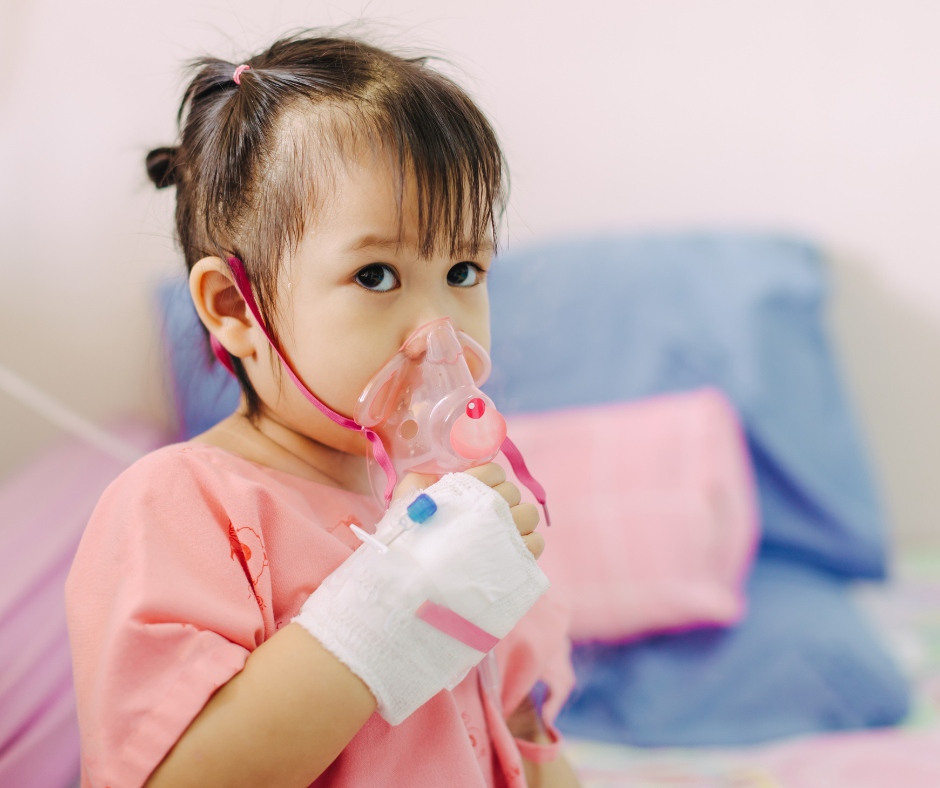There is no doubt that the dreaded flu and cold season has arrived. If you’ve seen the news lately, you likely know flu and RSV (respiratory syncytial virus) rates are on the rise. Many hospitals locally and across the country are at full capacity with kids sick with RSV. Masking, good hand-washing, and limited gatherings during the earlier parts of the pandemic helped keep flu and RSV rates down, but now that many safety measures have waned, respiratory viruses are hitting harder and earlier this season. For parents of young children, it can be hard not to worry at the first sign of the sniffles or cough. Is it the flu? Is it COVID-19? Is it RSV? Is it just a regular run-of-the-mill cold?
Symptoms of RSV
Most children get RSV at least once before the age of 2 years. For the majority of children, it looks like a regular cold, but for some, especially young babies and those with weakened immune systems, symptoms can become severe and cause bronchiolitis or pneumonia.
Here’s what to look for:
- Fever
- Cough
- Sneezing
- Runny nose
- Congestion
- Fussiness
- Poor appetite
Symptoms usually last an average of 5 – 7 days. Days 3 – 5 tend to be the worst. The symptoms above may be treated at home with comfort measures, and a visit to our office may not always be necessary right away. If symptoms don’t improve after 7 days, contact us to see if an appointment is appropriate.
When To Call Your Pediatrician
Children with more severe symptoms may need oxygen support to help with their breathing or IV fluids for dehydration. Call our office right away if you notice any of the symptoms below:
- Wheezing
- Fast, shallow breathing pattern
- Nostril flaring
- Grunting when breathing
- Pauses or difficulty breathing
- Dehydration (less than 1 wet diaper every 8 hours)
- Gray or blue colored tongue, lips, or skin
- Listlessness, decreased alertness
- Fever of 103° F or higher
- Fever that lasts longer than 3 days
How is RSV spread?
Like other cold viruses, RSV is spread through direct contact of saliva, mucus, and nasal discharge. Good hand-washing, sanitizing of commonly-touched surfaces, keeping up to date on vaccinations, and staying away from sick individuals can help protect your child.
At-Home Comfort Care
Antibiotics don’t treat RSV but these at-home strategies below can help your child feel more comfortable:
- Nasal saline and gentle suctioning to clear nasal passages for easier breathing and feeding
- Cool-mist humidifier
- Lots of fluids and frequent feedings to stay hydrated
- Acetaminophen or ibuprofen (6 months and older only) for fevers
Pediatric Associates of the Northwest is always here for you!
When it comes to children and illnesses, we know how stressful and scary it can be for the whole family. This is why we have our nurse advice line available 24/7 and same-day sick visits every day. Yes, that means weekends and holidays too! If you are concerned about your child, our experienced triage nurses are here to help!
During this nationwide surge in RSV and flu cases, we are doing our part to lessen the burden on local hospitals and emergency departments by caring for and treating patients as much as possible in our office setting. To do this, we are increasing our availability of same-day sick appointments each day and temporarily scheduling most well visits after the New Year when the surge of sick children is expected to improve. We appreciate your understanding and patience as we navigate this evolving situation.
Related Posts
- The Ultimate Guide to Summer Safety
- Tips and Tricks For Toilet Training Your Toddler
- Vote For Pediatric Associates of the Northwest As The Best Pediatrician Office
- Recognizing Asthma: How to Minimize Symptoms & Basic Management Tips
- Baby Bonanza 2025: A Lively, Learning-Filled Morning for Growing Families






